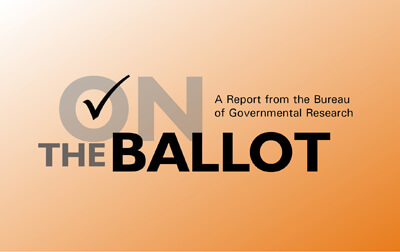
New Orleans voters overwhelmingly reject new tax for Council on Aging’s senior services
By Jessica Williams
Source: The Advocate
March 30, 2019
New Orleans voters overwhelmingly rejected a new tax to pay for services for senior citizens Saturday in an election that doubled as a test of political might between Mayor LaToya Cantrell and the City Council.
The more than 2-1 defeat of the tax means that property owners won’t need to add another 2 mills to their tax burden, amounting to $35 more a year for the owner of a $250,000 home with a homestead exemption.
It means the Council on Aging will have to make do with its current budget until Cantrell’s promise of a “comprehensive approach” for funding senior citizens services is fulfilled.
The tax would have allowed the agency to provide hot meals to roughly 1,200 more seniors now on waiting lists and invite many more seniors to activities at 12 centers across the city.
The result likely will be seen as evidence of the political strength of the mayor, who urged the electorate to vote against a proposal that the council strong-armed onto the ballot without her consent.
The rejection also likely reflects strong anti-tax sentiment among New Orleans voters already struggling in many cases with higher tax bills connected to rising property values.
Any voters on the fence could have been swayed when the nonpartisan Bureau of Governmental Research came out against the tax.
Analysts had suggested the proposal’s packaging might have given it a path toward victory. It was the lone measure on Saturday’s ballot in New Orleans, the type of very low-turnout election that typically attracts only the most chronic voters or those with a strong stake in the outcome.
Those voters are often older, and in this case many would have been able to benefit from the very services the tax’s revenue would have funded, noted University of New Orleans political scientist Ed Chervenak.
“The older the registered voter, the more likely they are to faithfully show up to vote,” he said.
But while many seniors may well have shown up at the polls Saturday, not every senior uses the Council on Aging’s services, or was in favor of paying extra taxes to support them.
“I’m not voting for it,” Rose George, 82, bluntly told a reporter last week. “I’m going to wait it out, see what else is there.”
Cantrell has been urging that tack for months through a well-funded political action committee, using a social media strategy reminiscent of the one that got her elected last year.
The PAC, known as Action New Orleans, raised at least $30,000 last year and thousands more in the weeks leading up to the election, according to state campaign finance reports.
That cash went to direct mailings against the tax, online videos that clearly explained the group’s opposition to it and other digital media.
“I unconditionally support providing more funding for our seniors, and I commend the work of the Council on Aging,” Cantrell said in a video posted to Twitter last week. “But as a city, we cannot keep sending our tax dollars to agencies that are unaccountable to the public.”
A group of 20 volunteers seeking to persuade voters to support the measure, meanwhile, had little money at their disposal.
Responding to Cantrell’s concern about accountability, the Council on Aging’s longtime director, Howard Rodgers III, pointed to his agency’s track record of clean audits, the quadrennial work plans it must send to the Governor’s Office and his personal commitment to ethical practices.
Saturday’s outcome means the agency’s financial woes are not going away, he said — in fact, they are expected to grow as more members of the baby boomer generation retire.
“I guess now we have to wait and see what the mayor’s solution will be,” Rodgers said.
Fair Use Notice
This site occasionally reprints copyrighted material, the use of which has not always been specifically authorized by the copyright owner. We make such material available in our efforts to advance understanding of issues and to highlight the accomplishments of our affiliates. We believe this constitutes a “fair use” of any such copyrighted material as provided for in section 107 of the US Copyright Law. In accordance with Title 17 U.S.C. Section 107, the material on this site is available without profit. For more information go to: US CODE: Title 17,107. Limitations on exclusive rights: Fair use. If you wish to use copyrighted material from this site for purposes of your own that go beyond “fair use,” you must obtain permission from the copyright owner.
